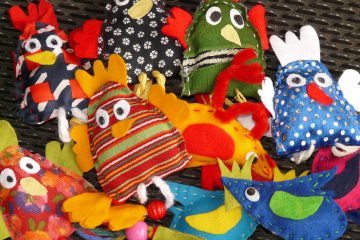I don’t think many teachers truly believe that having fun is the only prerequisite to learning. Even with my preschoolers, whose teachers I often tell that our 20 minutes may look like chaos but is really learning through play, I have to carefully structure our fun in order to maximize acquisition.
So why does it seem like even really good, communicative, proficiency-based classrooms include games that serve no other purpose than filling time with something I don’t have to grade?
I have seen some really, really bad game ideas.
Most of them involve using a word out of context. For example, one game involves drawing random letters out of a hat or otherwise randomly selecting a letter of the alphabet. A student has to think of a word (or as many words as she can) that begin with that letter. Aside from the complete lack of associated meaning, this is not even the way word recall typically works when we are trying to think of words to express meaning.
What about word searches? Here’s a list of thematically associated words. Find them in the jumble of letters. Better yet, here’s a list of English words. Put their Spanish translations in the crossword puzzle. Or how about this – I give you a verb, then the subject, and the first person to conjugate the verb correctly gets a point.
When did we forget that interacting with vocabulary in context is the only way long-term memory is created?
So, what makes a good game?
Basically, anything that gets students talking and using real language to accomplish something. Drama inmóvil is a fantastic game that my students love. Spin the bottle is a game that gets students using idiomatic expressions in context. Jeopardy lets you do a vocabulary recall game by eliciting vocabulary using contextual questions. Many corporate websites have games that get students interacting with language in a way that’s fun to them.
For sure, plan fun for your students. Laughter, drama, and other emotions have a way of encoding memory like no drill ever will. But make sure it has a communicative, contextual purpose – or your students might as well have more PE.
What are the best and worst games you’ve encountered?
Illustration snipped from warnerbros.es.
4 Comments
Comments are closed.





While I agree that games should primarily keep language in context as the principle focus, I disagree with you in that some “rote” memorization can be beneficial for students, especially those with learning disabilities. Similarly, games that involve one word recall should not be played for the sake of learning the word, but they can be beneficial to affirm students’ confidence and enthusiasm, just as we play games like scategories in our native languages to challenge our brains and affirm our enjoyment of the language. In this sense, the games are actually more authentic than many other activities that are used in the language classroom. I think that these games can have a time and a place as a quick five minute warm-up.
I don’t know about completely abandoning extra-contextual games. I still think there’s something to be said about incorporating lower order thinking to build a sense of competence en route to higher order thinking and contextual examples. That way something looks familiar, and the affective filter can come down a little bit.
I understand your points but I disagree for two related reasons:
1) Lowering the affective filter and affirming confidence and enthusiasm are *in themselves* not enough reason for me to do an activity in my class. There simply has to be a learning objective because
2) we don’t have enough time. I love to play Scattergories and Scrabble and the like, but I have never learned anything from them. Ever. I don’t have time to waste on activities that I know will not access the magical association tools that encode memory in their brains.
I have to add that I do not have a lot of experience teaching children with learning disabilities (I do have some in preschool that we suspect have issues, and I have a few ADHD kids in lower elementary). But I refuse to believe that being able to match a word on a test or think of a word that starts with a certain letter is an acceptable learning outcome for anyone, including students with learning disabilities. The only way I know some of my younger students really struggle in their other subjects is because I’ve heard their teacher talk, or their parents, or I have a first grader who is repeating first grade this year. In my class these same students produce meaningful language.
I am a rote memorizer. I remember memorizing things for competitions and for school (for example, the list of all the British kings and queens in order and by family). I am good at memorizing fluff like this. But as I’ve taught kids in a communicative classroom, I have landed firmly in the camp of rote memorization never produces memorable connections that lead to meaningful communication. Ever.
And I just about could not tell you today two consecutive British rulers.
Hello,
I recommend two pages with fun rhymes ideal for learning Spanish:
Cantajuegos online
Canciones infantiles online
Greetings